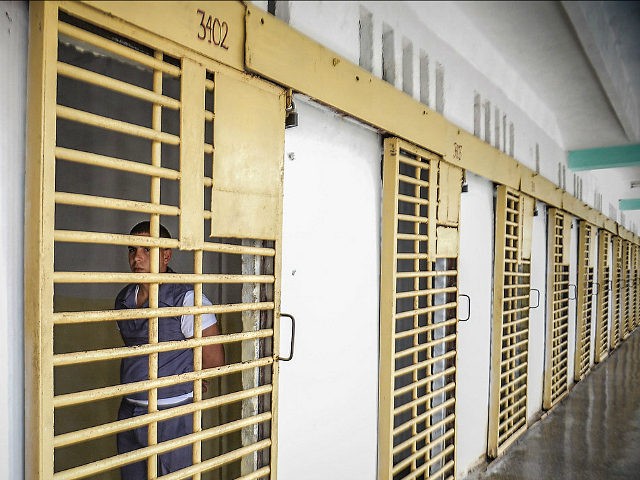The U.S. State Department issued a demand to the communist government of Cuba Tuesday to free its over 100 known political prisoners—in particular two doctors known to be suffering health problems in prison—and ends its policy of harassing, torturing, and jailing “counterrevolutionary” voices.
The State Department press release advocated in particular for Dr. Eduardo Cardet, a medical doctor arrested in 2016 and sentenced to three years in prison in 2016 for refusing to mourn Fidel Castro, and Dr. Ariel Ruiz Urquiola, a biologist arrested after being confronted over an ecological site he was using for a legitimate environmental study.
Apologists for the Castro regime have long insisted that the communist autocracy has invested in protecting Cuba’s lush environments, and Cuban state propaganda often supports international initiatives that target the American economy in the name of sustainability.
“The cases of Dr. Ariel Ruiz Urquiola and Dr. Eduardo Cardet, both of whom a prominent human rights organization has declared ‘prisoners of conscience,’ are just two examples of how the Cuban government continues to silence the peaceful opposition of its own citizens,” the State Department said in a statement Tuesday, referring to Amnesty International’s designation.
“We call on the Government of Cuba to release all political prisoners immediately and to stop its arbitrary detention of Cuban activists and independent thinkers who criticize their government through peaceful means,” the statement reads. “We also call on the Cuban government to cease reprisals against the family members of these activists.”
The State Department notes that the regime has blocked Cardet’s family from visiting him, while Ruiz is believed to be undergoing a hunger strike. “Cuban government officials have harassed Dr. Ruiz Urquiola for years for speaking out on environmental issues,” the statement notes. “We are deeply troubled by reports that he is currently on a hunger strike and in a critical medical condition.”
Cardet is a longtime anti-communist activist, the head of the island’s Christian Liberation Movement (MCL). In November 2016, Castro regime police approached Cardet and demanded that he sign a condolence book for Fidel Castro. Cardet reportedly refused, so police beat him publicly and hauled him off to prison. He was sentenced to three years in prison for allegedly “attacking” the officers he told he would not sign the book. The arrest occurred in public and no witnesses have come forward to corroborate any claims of an attack on Cardet’s part. His wife and children were present for the arrest.
Cardet suffers from asthma, a condition which as reportedly worsened in prison.
In January, his wife told international media that a group of three non-political prisoners in the facility housing Cardet had beaten him in prison, causing significant injury. As wife Yaimaris Vecino regularly kept anti-Castro media outside of the island informed on his condition, authorities cut off visits from family for six months in May. They have also limited phone calls to five minutes once a week.
Ruiz Urquiola’s path to prison was more unconventional than Cardet’s, as he has not engaged in sustained political resistance but rather used his career as a biologist and environmentalist to challenge the regime through his expertise. Ruiz had legally acquired permission to use the territory surrounding his home for environmental studies and began a sustainability project there in 2016. The government appeared to have moved to take the property away in May, sending two park rangers to visit his property. The private nature of the study appeared to have alarmed the government.
Ruiz is in prison for the crime of desacato, or “disrespect,” for having allegedly treated the government agents rudely other than referring to one of them as a “rural guard.” There is no evidence pointing to this “crime” and his family says the government simply acted to confiscate his property, noting that the study area had been vandalized in the past, according to Diario de Cuba. While the Castro regime operates as an organized criminal entity, freelance crime in Cuba is rare due to the regime’s near-complete control of citizens’ lives.
Ruiz is currently on hunger strike, stabilized by IVs hydrating him but refusing to eat, according to family.
The Castro regime significantly increased its repression of dissidents following President Barack Obama’s policy change in 2014 granting major economic and diplomatic concessions to the regime. The number of political prisoners in Cuba doubled between 2016 and 2017. It is believed that at least 120 people are in prison in Cuba for expressing disapproval of the regime, not including those forced into psychiatric facilities for public rejection of communism.

COMMENTS
Please let us know if you're having issues with commenting.